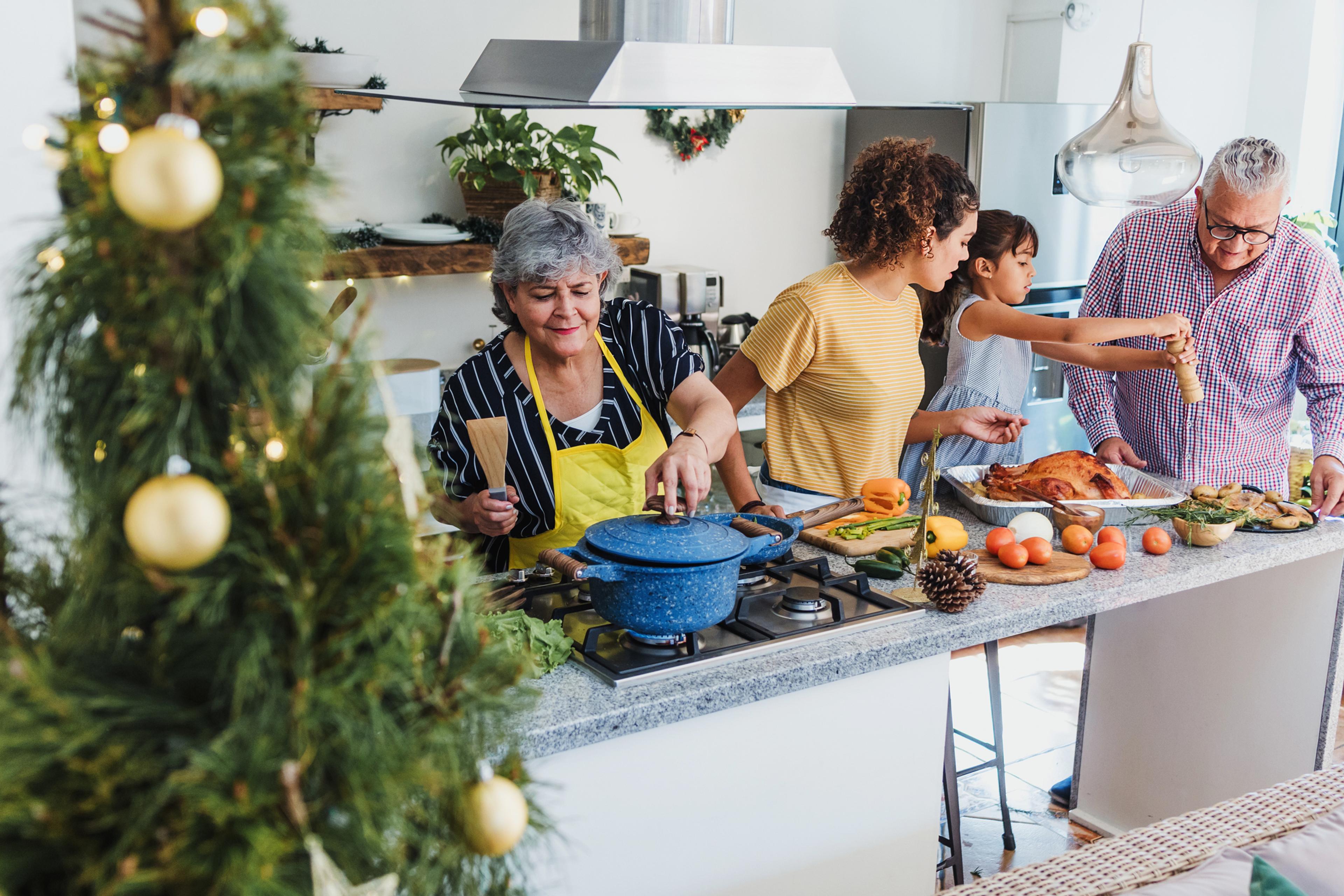How to Protect Your Heart During the Holidays

Lindsay Knake
| 3 min read
Lindsay Knake is a brand journalist for Blue Cross B...

The holidays can increase the stress on us, including our hearts. Heart attacks are more likely to be fatal in late December and early January, according to research from the American Heart Association.
Stress from busyness and travel, a delay in care, indulging in high fat and high sodium foods and cold weather may all be possible causes of the increase in mortality from heart attacks during the holiday season.
Learn more about how to protect your heart during the holiday season, especially if you have heart problems.
How protect your heart health during the holidays
Learn the symptoms of a heart attack
One way to save your own life or the life of a loved one is to know the common symptoms of a heart attack:
- Chest pain
- Feeling lightheaded and short of breath
- Nausea or vomiting
- Feeling indigestion or heartburn
- Pain or discomfort in one or both arms, neck, back or jaw
- Fatigue
Heart attack symptoms are not always the same for men and women. Women are more likely to experience nausea and fatigue, and men are more likely to have chest pain.
Maintain a healthy diet
Overindulging during the holidays, especially in alcohol and foods high in saturated fat and sodium, can negatively affect heart health. Try to maintain a healthy diet with fresh vegetables and fruit and minimally processed meat during the holiday season. Limiting or avoiding alcohol and watching sugar and sodium intake can help reduce risks of heart attacks.
Exercise regularly
Although the holiday season can be busy, keeping time for exercise is important for both physical and mental health. Build time to go for walks or get in a workout at least a few days a week during the holidays. Asking family or friends to join you is one way to ensure you get exercise.
Take your medications
If you have known heart problems, take your medication as your doctor prescribed to reduce any unwanted side effects.
Reduce stress
While it can be difficult to avoid stress entirely during the holidays, take care of yourself. Eat well, exercise and get plenty of sleep. You may also consider having a cozy night in to watch a beloved movie, saying “no” to a few events, planning simpler parties and letting go of perfectionism.
Know hands-only CPR
Learning how to do hands-only CPR is another way to save the life of a loved one or stranger. There are trainings available through the American Heart Association. Here is a guide on CPR basics:
- See if you can wake the person if they are unconscious and ask them how they are.
- If they remain unconscious, check for a pulse. Place your index and middle fingers on the side of their neck over the carotid artery, the groove between the trachea and neck muscles. Check for the pulse for five to 10 seconds. If you cannot detect a pulse, prepare the patient for chest compressions.
- Lightly tilt the victim’s head back to lift their chin. Kneel and place the heel of your hand on the person’s chest between their nipples.
- If you are performing CPR on an adult, place the heel of your other hand on top and intertwine your fingers. Straighten your elbows and align your shoulders over your hands.
- Using your upper body weight, start compressions. Perform 100 to 120 compressions each minute, allowing the chest to rise after each compression. The beat of “Staying Alive” by the Bee Gees has the correct timing for chest compressions.
Image: Getty Images
Related:





